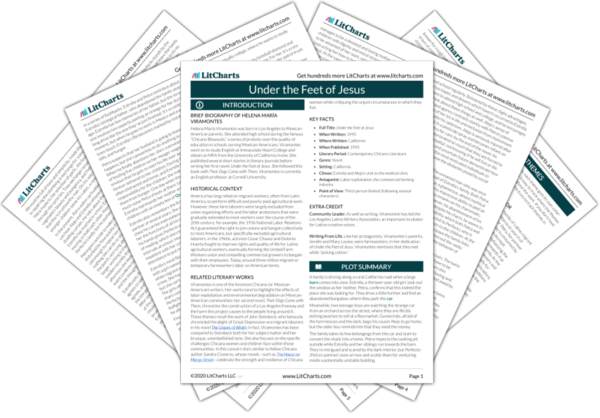For Estrella, this is a rare moment of leisure and ease, but she’s actually peeking into the lives of more privileged children her own age, whose lives are characterized by leisure. This poignant moment epitomizes the distance between Estrella and the middle-class society whose lifestyle her work facilitates.
